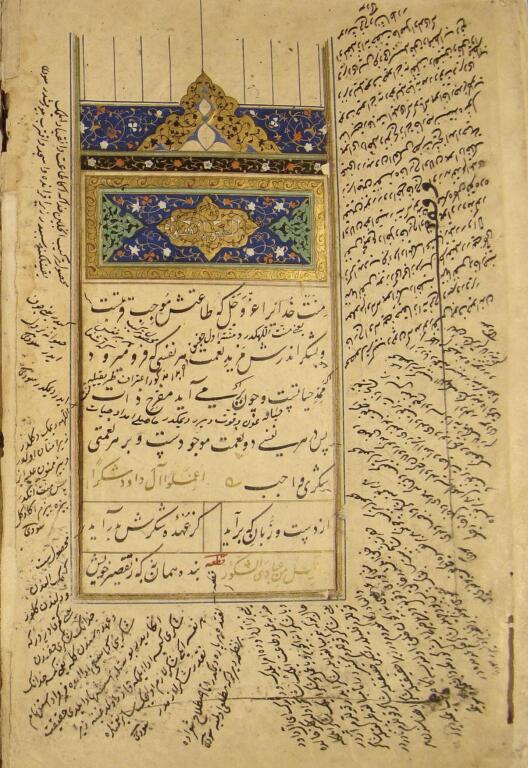The Ottoman Balkans as a Space for Multilingualism: Actors, Practices, and Sites of Translation

From the 14th century onward, the Old Anatolian Turkish literary language underwent a process of Arabisation and Persianisation and established itself as the third of the “three languages” (Turkish: elsine-i s̱elās̱e) alongside Arabic and Persian in the milieu of the Ottoman elites. At the same time, the reception of Persian literature, in particular, expanded – a phenomenon that has been discussed in the context of the “Persianate world” as well as “Persophonie”/“Persographia” or the “Balkans-to-Bengal complex”. Given these overarching paradigms, translation activities and the complex phenomenon of multilingualism can be traced well beyond Anatolia and, particularly so, in the Eastern Mediterranean during the Ottoman (and post-Ottoman) period. In the Ottoman Balkans (Rumelia), as an important point of Islamicate literacy and a region where Ottoman and Western European cultures overlapped, these activities often included a fourth language, adding a new dimension to multilingual practices. Yet, in the scholarly discussions of multilingual practices and cultures, the region of the Balkans with their multiple hubs of cultural production, such as Saraybosna (Sarajevo), Mostar, Yenice-i Vardar (Giannitsa), and many others, has not yet featured as a distinct focus of studies on translation practices and multilingualism, despite evidence attesting to extensive literary production and copying processes, circulation, and even local appropriations of canonical Arabic-Persian texts.
This international workshop will centre on the Ottoman Balkans as a dynamic space for translation and cross-linguistic exchange specifically, seeking to relate broad-scale concepts (as mentioned above) to locally verifiable practices, thereby deepening our understanding of early modern multilingualism and the circulation of knowledge in the Ottoman Empire. As the focus of attention, the workshop is mainly though not exclusively concerned with translations between Arabic, Persian, (Ottoman) Turkish, and regional languages of the Balkans, Slavic and non-Slavic alike, as a key practice of early modern multilingualism in the Eastern Mediterranean, with a main emphasis on the Ottoman Balkans (15th–19th centuries). In doing so, it will shed light on the intersection of Islamic scholarly culture, empire building, and linguistic contact zones in a region that has been largely neglected by research.
The specific contributions deal with the above themes and discuss primary source materials such as manuscript witnesses or early print editions, possibly also taking into account paratextual evidence (colophons, ownership, reading/endowment notes). Prospective studies will combine philological analyses with contextualising discussions of translators, scribes, patrons, and other actors, institutions, or networks facilitating practices of translation and multilingualism in this region.
Jointly organised by the research group TRANSLAPT (University of Münster) and the University of Sarajevo, the workshop will be held at the Gazi Husrev-beg Library in Sarajevo, an institution housing a significant cultural heritage relating to the above themes, including around 11,000 manuscripts written in the Arabic, Persian, Turkish, and Bosnian languages as well as a rich collection of early printed works. The workshop aims to bring together studies on the complex and multilingual heritage of the region, with an emphasis on identifying what texts were translated, who undertook these translations, as well as the contexts in which they occurred.
Organising Committee
Prof. Dr. Philip Bockholt (University of Münster)
Prof. Dr. Munir Drkić (University of Sarajevo)


